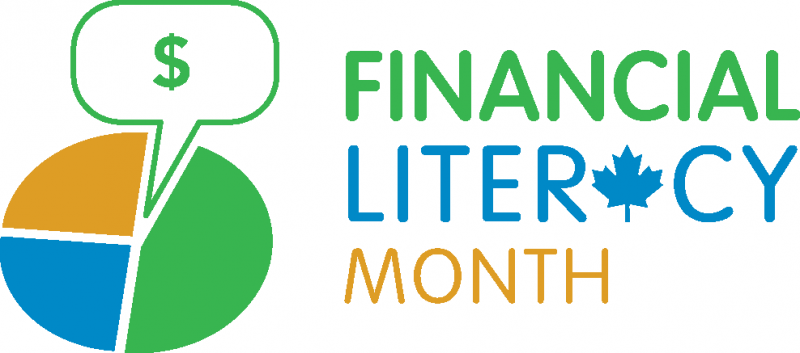Welcome to November, Financial Literacy Month in Canada
Financial literacy is the ability to understand and discuss financial concepts and apply them to your own financial situation. It includes skills like budgeting, paying bills on time, making decisions about financial products, planning for the future and being financially prepared for an emergency. Financial literacy skills are really life skills; as essential as numeracy and basic literacy. Financial literacy skills can lead to financial empowerment and are important for the financial well-being of individuals and families but also for the economy as a whole. Financial literacy is also directly related to success for any business. All good reasons why in 2012, the Parliament of Canada proclaimed each November as Financial Literacy Month in order to raise awareness among Canadians and stakeholders about the importance of financial literacy in strengthening an individual’s financial well-being.
Never has financial literacy been more critical.
Canadians’ debt loads are growing, along with their financial vulnerability. 4 in 10 Canadians report that money is a daily concern. Too many Canadians live paycheque to paycheque. A third of lower income Canadians report worrying about money almost constantly. Financial decisions are becoming more complex with so many options for savings, spending, investing and borrowing. It is also a time of increasing financial uncertainty with nearly 6 out of 10 Canadians not having a good idea of how much money they need to save in order to maintain their standard of living in retirement.
Throughout the month of November, Canadians are encouraged to invest in their financial well-being. This means learning or improving skills related to
- Having control over day-to-day and month-to-month finances in order to absorb financial surprises, meet financial goals and gain financial freedom
- Reducing stress by making a budget and sticking to it to make paying off debt easier
- Having a savings and debt reduction plan
- Making informed decisions including understanding financial rights as well as financial responsibilities as depositors and borrowers
- Helping start good habits early by helping the next generation build essential financial life skills
Throughout November many organizations and individuals from across Canada are being encouraged to host and participate in events and share resources aimed at helping Canadians learn how to manage their personal finances successfully. Here are a few good resources on financial literacy to share
ABC Life Literacy Canada provides free financial literacy tools and resources (https://abclifeliteracy.ca/financial-literacy)
Financial Consumer Agency of Canada provides a comprehensive database of resources, events, tools and information on budgeting, money management, insurance, saving, investing and taxes from various Canadian organizations (https://www.canada.ca/en/financial-consumer-agency/services/financial-literacy-database.html)
CPA Canada provides helpful financial literacy resources as well as financial literacy sessions (https://www.cpacanada.ca/en/the-cpa-profession/financial-literacy/financial-literacy-resources)
MyMoneyCoach is a site that launched in 2010 with the support of the Credit Counselling Society (CCS) to help Canadians with personal money management. CCS is a non profit charitable organization dedicated to helping individuals and families find solutions to their debt and money problems. They provide confidential and free counselling services, credit education and debt management programs.
Propsper Canada is a national charity dedicated to expanding economic opportunity for Canadians living in poverty through program and policy innovation.
These resources can go a long way to helping Canadians build financial knowledge to make sound financial decisions that will enhance their personal finances as well as business outcomes and ultimately, their local business communities. Please share these resources in the spirit of Financial Literacy Month to someone you care about that could benefit from improved financial literacy skills. And please consider working with a financial planner who can help you become more empowered with your finances by improving your understanding of financial matters on an ongoing basis. All the best.







